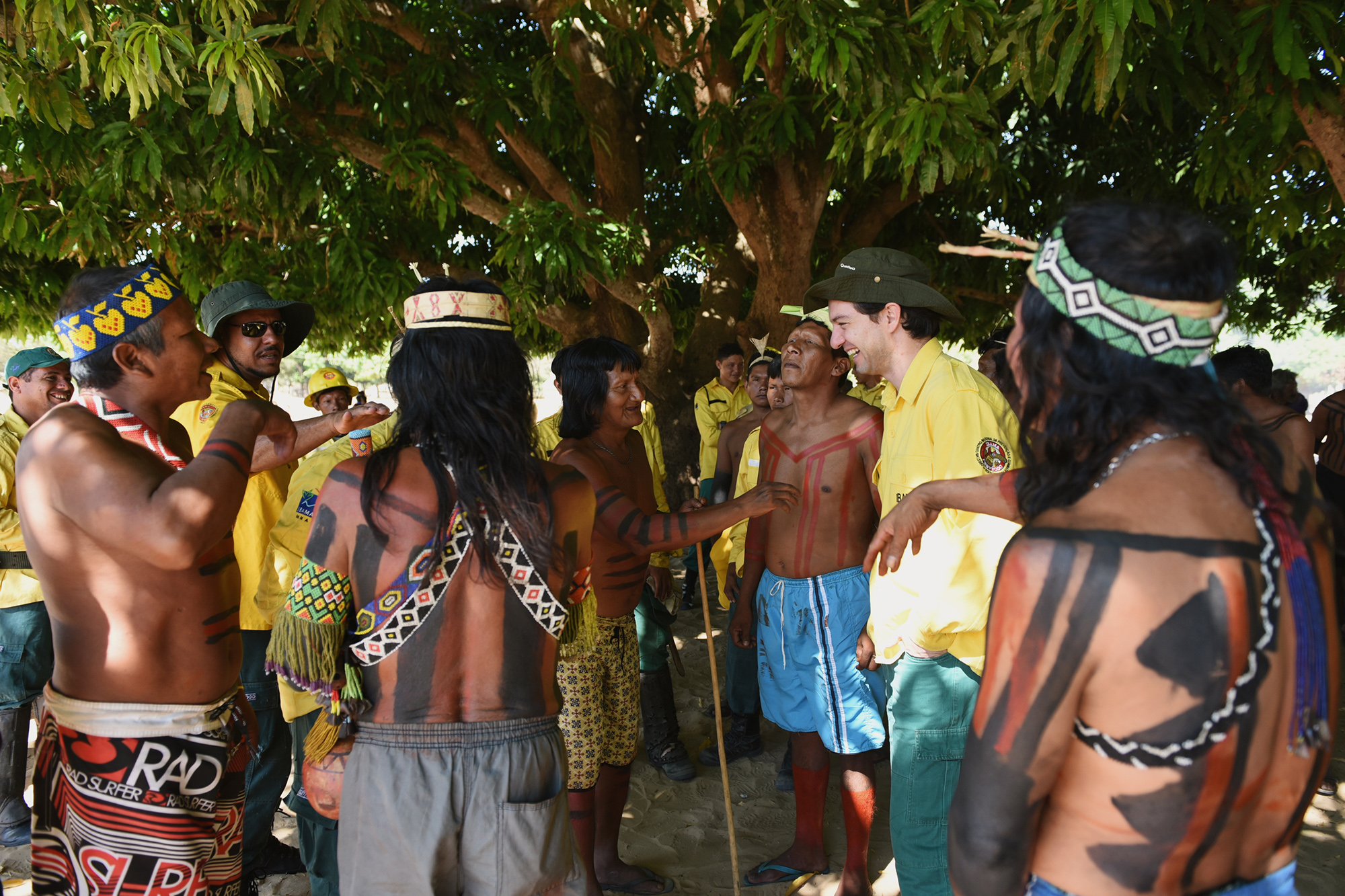Indigenous Peoples’ food systems publication wins the 2021 Best in the World Sustainability Report Award
Unique, FAO-led collaborative study is currently exhibited in the 2021 best food culture books exposition at Alfred Nobel House

Unique, FAO-led collaborative study is currently exhibited in the 2021 best food culture books exposition at Alfred Nobel House
©Felipe Werneck/FAO
Rome - A recently launched FAO-led publication on Indigenous Peoples' food systems won the 2021 Best in the World Sustainability Report Award. The annual award was established by the Hallbars Sustainability Research Organization to promote the creation and distribution of sustainability reports.
The publication entitled Indigenous Peoples' food systems: Insights on sustainability and resilience from the front line of climate change is the result of a collaboration between FAO and the Alliance of Bioversity International and the International Center for Tropical Agriculture (CIAT) along with several Universities, Research centres and local Indigenous Peoples organizations. The publication profiles eight Indigenous Peoples' food systems in the Amazon, Sahel, Himalayas, Pacific Islands and the Arctic, documenting their food generation capacity in a sustainable and resilient way while conserving e biodiversity in the ecosystems. Despite the high degree of food self-sufficiency, essential for their food security, the publication warns about the increasing threats and mounting external pressures these unique food systems face.
"The Hallbars Award jury recognizes the great value of the content of this publication for sustainable development. We admire and respect Indigenous Peoples and the authors of this publication who shared a deep knowledge on food and natural resources, along with their unique experiences," said Edouard Cointreau, President of Hallbars, at a virtual award ceremony today.
"This publication has been recognized as the most important book of the year and will become a classic. If you are willing to read a book this year, ensure to read this one, it could change the way you see food and life," added Pelle Agorelius, member of the Hallbars Jury.
"This publication portrays many lessons that humanity can learn from Indigenous Peoples to make food systems more sustainable, like the holistic approach to food, the importance of seasonality as consumers and producers, the circularity of food systems to reduce food waste, and the respect for food and the environment", said FAO's Director on Innovation, Khalid Bomba. He continued saying: ¨Indigenous Peoples traditional knowledge when combined with technology and new techniques can provide innovative solutions for problems affecting human kind such as food insecurity and climate change.¨
¨Indigenous Peoples´ food systems for centuries have provided food, shelter, culture and maintain our social fabric and cosmogonies across the world. These systems have fed our communities for thousands of years. We tell the world we are the living proof that you can have sustainable and resilient food systems. We tell the World that our Indigenous Peoples´ food systems are game changers that can offer insights to transform global food systems that are fast depleting the resources in our planet¨ said Bah Phrang Roy, a Khasi elder and indigenous leader.
Representing the Scientific Editorial Committee of the publication, Barbara Burlingame, Professor of Massey University highlighted that "this publication and this Award are important because they recognize the centrality of Indigenous Peoples´ food systems in preserving biodiversity and Indigenous Peoples as the best guardians of Mother Earth".
"This Award is a recognition to Indigenous Peoples worldwide, who daily preserve their ancestral food and knowledge systems, fight climate change, protect biodiversity, and face pressures from external actors on their lands. We would like to dedicate the Award to those Indigenous women, youth, elder and men who protect land and natural resources with their life across the world", said Yon Fernandez de Larrinoa, Head of the FAO Indigenous Peoples Unit.
The publication is currently exhibited along with 600 books from 55 countries at the Alfred Nobel House in Karlskoga, Sweden, as part of the Sustainable Gastronomy exhibition. The exhibition, organized by the Gourmand Awards and the Hallbars Sustainability Research Institute, was inaugurated on June 18 for Sustainable Gastronomy Day and will end on October 21, 2021 with Alfred Nobel's birthday celebration.
Contact
FAO News and Media (+39) 06 570 53625 [email protected]
